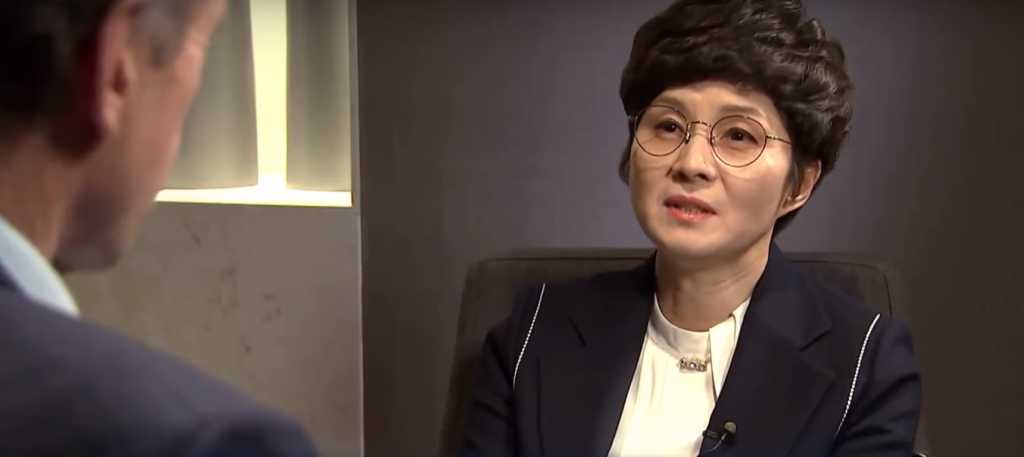The date was 29 November 1987 when 115 people lost their lives after their Korean Air passenger jet exploded in mid-air. The bomb that did the fatal damage was planted by two North Korean secret agents, one of whom was named Kim Hyon Hui. The flight was from Baghdad, Iraq, to Seoul, South Korea, with a stop-off in Abu Dhabi. Kim and her accomplice planted an improvised explosive device above their seats and disembarked the aircraft in Abu Dhabi.
“The bomb was a small Panasonic radio, behind that there were … batteries. North Korea built it so half of it acted as an explosive with chemicals, the other half could be used as a regular radio,” said Kim, as reported by CNN.
“I was very nervous at that time,” Kim continued. “I picked up the batteries, put them back in the radio and complained to the officials. When I turned on the radio, sound came out so I told them they were making too much of a fuss.” Officials then allowed Kim to pass through security and board with the radio bomb device intact.
The plane continued on its journey to South Korea. The device detonated and the aircraft exploded over the Andaman Sea. All those on board were killed. Kim attempted to flee to Amman, Jordan, but there were complications with their travel visas. So, they headed to Bahrain instead. But it wasn’t long before the authorities realized that their passports were forged. According to their instructions and realizing they were about to be taken into custody, the pair bit into cigarettes that were filled with cyanide, in order to commit suicide.

“We were taught that if an agent fails on a mission, he or she needs to commit suicide. We need to swallow the pill to protect the secret … we know very well that our families in the North would be harmed, so naturally we decided to swallow the pills. At the time I thought my 25-year-old life ends like this,” Kim explained.
Kim’s fellow spy died, but Kim went into a coma and ultimately survived.
“The mission was to block the upcoming 1988 Seoul Olympic Games,” Kim told CNN.
Hyon Hui ended up receiving a death sentence for her crimes. Over time, however, she was seen as someone who had been coerced and indoctrinated by her own government. She was pardoned by President Roh Tae-woo and ultimately granted citizenship in South Korea.
“In North Korea, I lived as Kim Il Sung’s robot,” Kim said in an interview, as reported by The Washington Post. “In South Korea, I got to live a new life.”
Unsurprisingly, Kim has carried a burden of guilt and shame ever since that fateful day. She even penned a book about her experiences, aptly titled The Tears of my Soul. When asked about how she might go about building her own life, and even getting married one day, Kim famously said: “I am guilty of a heinous crime. How do I dare to think of marriage? … Being a culprit I do have a sense of agony with which I must fight. In that sense I must still be a prisoner or a captive—of a sense of guilt.”
“When I heard I was pardoned, rather than feeling joy of regaining life, I thought of my mother back in the North. How happy she must be if a daughter who almost dies then lives, but I was a big sinner. I should have died,” she continued.
Eventually, Kim began working for South Korea’s National Intelligence Service before marrying one of her bodyguards. But she is still beaten down by guilt and shame.
With the winter Olympics just days away from commencing in South Korea, diplomatic relations to bring the two Korean nations together are being solidified. The two nations will share a flag and have even taken the decision to combine their ice hockey teams.
But Kim has some pointed words in response to that show of so-called “unity.”
“That flag,” she said, “doesn’t symbolize peace.”
Still, the former North Korean spy hopes that her work with the South Korean intelligence agency can prevent another tragedy like that horrific 1987 bombing from ever happening again.
“As a living witness to North Korea’s terror, I tell the truth and I am on the front line to prevent this kind of attack,” she said. “Korea is still at war when it comes to ideology and thoughts.”
When it comes to those haunting memories of death and destruction some 30 years ago, Kim still has one burning question that fails to let her sleep at night.
“Can my sins be pardoned?” she asked. “They probably won’t be.”



